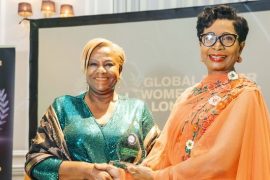By Staff Writer.
The importance of female representation in politics extends beyond its relevance to women alone. Research indicates that political gender equality is associated with improved economic stability, enhanced democratic effectiveness, and increased peace and prosperity. Intriguingly, the current state of female empowerment raises questions.
Despite progress in some regions, South America’s global ranking for female representation in top political and public offices has declined. This article explores the current state of women’s political representation in South America and the Caribbean, highlighting the challenges and potential solutions.
Across Latin America and the Caribbean, women’s participation in legislative bodies remains low, with men predominantly occupying these positions. While countries like Mexico, Nicaragua, and Cuba have achieved 50% or more women’s representation in their parliaments, others fall short. Haiti, Antigua and Barbuda, Saint Lucia, Belize, Brazil, Paraguay, Bahamas, Saint Vincent and the Grenadines, Colombia, and Guatemala have less than 20% representation of women in parliament. Haiti, in particular, has the lowest regional representation, with only 2.5% of women elected to national parliaments.
Women face various gender-based barriers to political participation, including economic, social, institutional, and cultural factors. Brazil, for example, witnessed political violence against congresswomen and female mayoral candidates during the 2020 elections. Electoral laws and regulations also limit women’s opportunities. While gender quotas and parity laws aim to enhance female representation, their specific features significantly influence outcomes. Brazil’s introduction of quotas for female candidates in local elections has seen improvements, but entrenched gender norms, discrimination, insufficient support, and lax enforcement hinder progress.
While quota regulations create designated spaces for women, their effectiveness varies. Bolivia’s zipper system, enforcing gender alternation on candidate lists, has resulted in over 50% female representation in the national assembly. In contrast, Brazil’s 30% quota for female candidates has not translated into a proportional increase in elected women. Additional measures, such as allocating budgets to female candidate campaigns and establishing reserved seats for women, can effectively enhance representation. Mexico’s recent voter turnout and Colombia’s election of its first female vice president demonstrate progress.
Challenges and Initiatives:
Despite women holding leadership positions in political organizations, challenges persist in expanding female participation within the party framework. Paraguay, for instance, faces a significant lack of women’s representation in politics. To address this, the European Union has supported the establishment of the Political Training School for Women Leaders, aiming to increase women’s involvement and leadership. However, barriers to entry into politics remain significant and require attention.
The Path to Gender Equality:
South America must strive for greater gender equality in politics. Currently, only about 30.1% of women hold ministerial positions, lagging behind many European countries. Efforts to promote women’s empowerment through laws and policies are crucial for shaping political opportunities. Overcoming obstacles, reforming institutions, and challenging societal norms are essential steps toward inclusion and diversity. Achieving women’s political empowerment requires not only sociopolitical reforms and technical capacity development but also a fundamental shift in mindset.
In conclusion, diverse and inclusive political representation is vital for enriching policy and decision-making processes. South America and the Caribbean must address the challenges hindering women’s political participation and work towards achieving gender equality. By embracing reforms, dismantling barriers, and fostering a supportive environment, the region can unlock the full potential of women’s leadership, closing the gender gap and driving economic growth.
The journey towards gender equality in politics is not just a policy change; it’s a societal evolution.





Comments are closed.